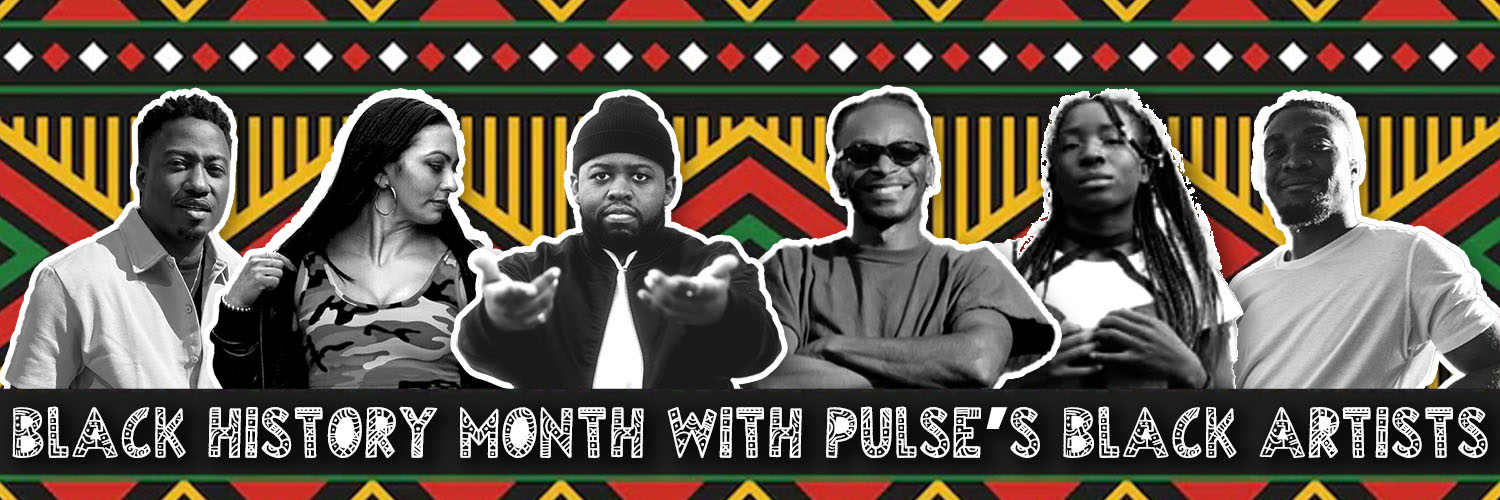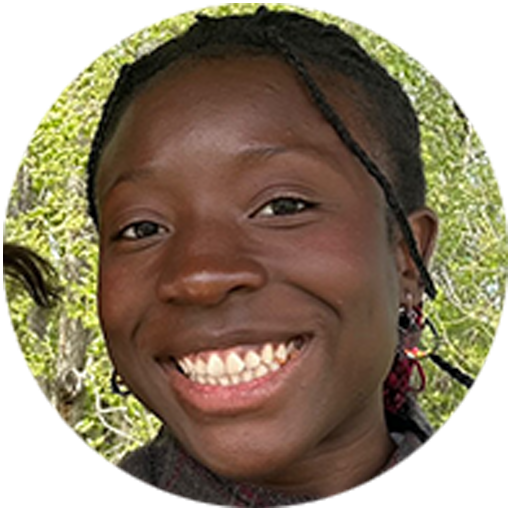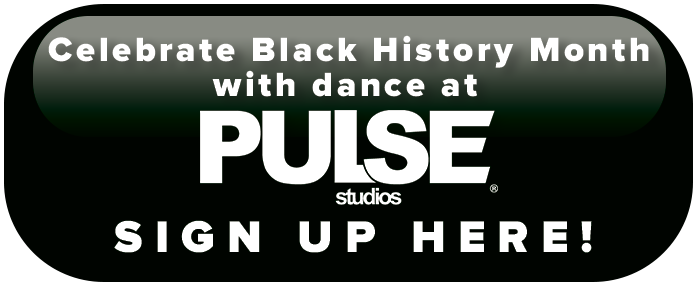Black History Month is a time for reflection, education, and celebration — a moment to honour the rich cultural heritage, resilience, and contributions of Black communities. We touched upon its origins and connections to Hip Hop with the article “Celebrating Black History Month Through Hip Hop” (check it out!). But beyond the history books and mainstream narratives, Black identity is deeply personal, shaped by experiences, traditions, and connections to the past.
In this interview, we spoke with Aris Tungani, Jesse Holbrook, Eno Ekpenyong, Jordan Bailey, Jess O’Connor, and Princess Roberts, each from diverse backgrounds, about what Black History Month means to them, how they celebrate their heritage and the importance of recognizing both the struggles and triumphs that define Black culture. Their stories offer a powerful reminder that Black history isn’t just something to be remembered — it’s something to be lived, embraced, and carried forward every day.

Let’s start with where your family originates from.
Aris: My family originated from the DRC (Democratic Republic of the Congo), which is a country right in the middle of Africa.
Jesse: Both of my parents are from Ghana, West Africa. They both moved to North America 35 years ago.
Jordan: My family originates from Trinidad and Tobago in the Caribbean. They moved here in Calgary back in the 80s.
Eno: I am Nigerian from the south side of Nigeria. My immediate family lived in the UK for two years before settling here in Calgary in 2022.
Jess: My mom's side is from Poland and Russia and my dad's family mostly originated in Jamaica. His dad was from Honduras and my great-grandfather was Chinese, so a little bit of everywhere.
Princess: My family is from Sierra Leone and I was born in Gambia. We moved to Canada when I was two years old.
What does Black History Month mean to you?
Jordan: Black History Month shows the growth of Black people, Black history and culture. It’s an appreciation of the hardships we’ve endured but also all the good that has happened throughout the years and what is continuing to this day.
Aris: It’s a month to celebrate different Black cultures and the struggles of the leaders in these communities who paved the way for the rest of us.
Jess: I would say it's a recognition of the past to what Black communities across North America and the world have been through, but also a celebration of the contributions, its impact, and how we can continue celebrating, recognizing, and uplifting each other.
Jesse: Hip Hop derives a lot of its inspiration from the motherland, Africa. So, I like to see this month as a way to give back to the cross-inspiration between Hip Hop and our African heritage.
Princess: To be honest, I've been trying to discover more of my Black heritage. Growing up in Airdrie, not surrounded by many Black people except my family, I don't feel I really connected to it very much. Recently, I've been asking my family about growing up in Sierra Leone. Whenever Black History Month comes around, I make an effort to learn more about the history, and Black creatives, politicians, and lawmakers.
“To me, Black History Month is deeply personal. Outside of what it means to the world, celebrating Black artists and Black innovators, it's a reminder of my home, heritage, and culture. A reminder of who I really am. It's a time for me to be reminded that I am somebody, I am worth something, I'm strong, I'm valuable, and I matter.”

Eno Ekpenyong
How do you celebrate your Black identity and heritage?
Jesse: I celebrate through dance, which connects me more to where I come from. I was born and raised in Canada. So, I do feel I'm a little disconnected at times. There isn’t a lot of social currency to understand where I come from. We want to blend in and be like everyone else. But dancing enables me to connect with my heritage and inspires me to connect with my family in Ghana.
Eno: I celebrate Black History Month through my art. As a Black AfroFusion teacher, it's a time to bring the community together and establish the vibe. I create that energy everywhere I am.
Princess: Getting into Hip Hop is a way I celebrate my heritage, learning about different Black choreographers and dance styles. Oh, and I also celebrate every time I eat my traditional foods like jollof rice and okra soup!
Jess: Being of mixed race, I feel I’m in a unique position. As the world continues on, we see more and more mixed kids, which is fantastic, but I think it's recognizing my background as well as all different walks of life and how I can continue to show up in all of those spaces.
Jordan: During Black History Month, it hits me a little bit harder to prove myself to my family and hopefully to my ancestors by never stopping grinding and pursuing my art.
“I celebrate through my style, what kind of music I listen to, and how I dress. Specifically, within the Congolese culture, there’s a huge emphasis on how we dress. Dressing up like it was our last day. We even have a word for it – sapology.”

Aris Tungani
Is there a figure or an event like history that resonates with you?
Eno: End SARS was a social movement and series of mass protests against police brutality in Nigeria that occurred in 2020. I was living in the UK at the time, but the movement made us come together as one. Nigeria is a country where the minority is silenced, but we stood up for ourselves, embodying why Black History Month is celebrated.
Jordan: The biggest figure for me is Michael Jordan. I was named after him, and he epitomizes the greatest of all time in his craft. But also I credit my mother. She's a very powerful and strong woman who raised me as a single mom. She’s been one of my biggest supporters to pursue my dreams and I’m thankful to her every day.
Aris: I’ll definitely say my dad. He is an amazing and incredibly hard-working person. He grew up as an orphan and faced extremely challenging circumstances, but he pushed through for himself and built our family from that strength.
Jess: I look for inspiration all over the place, whether it's a big event or the little day-to-day things. Whenever I learn of new contributions from Black entertainers and politicians, I am revitalized with inspiration.
Princess: Florence Griffith Joyner is the first one I think of because she's the world record holder for women in 100-meter sprint and I used to do track and field. The second would be Simone Biles because of her dedication and how she breaks the stereotypes people have of Black women in sports. Plus, she’s just a boss!
“In Ghana, there was like this lady by the name of Yaa Asantewaa. During the colonial period, she led her tribe to an insurrection against the British. I respect how brave she was to lead her people against her oppressors.”

Jesse Holbrook
What do you think is often overlooked when people talk about Black history?
Aris: I think what's been overlooked is the connection and knowledge passed between different generations. When we think of Black History Month, it’s usually from a North American context, but there’s a deeper story that traces back to our African roots. What was the journey of our ancestors before coming to North America?
Eno: We celebrate Black people who have made an impact, changed laws, or contributed to the growth of North America, but I think what we overlook is where these people are from. Every Black person is African before they became whoever they are right now. This might be home for me now, but I am from somewhere. We are overlooking the actual roots of Black history.
Jesse: I feel like the modern-day experience sometimes gets overlooked. We typically highlight historical figures and major important events. But there are uncomfortable interactions and microaggressions that Black people go through every day that can take a toll growing up. It could be something as little as being in a classroom when you're younger when the lights go off and other students jokingly ask, “Where did you go?” That hurts.
Jordan: It’s the small things. Black people are just loving people and can get along with absolutely anyone. We love hearing about other people's days and learning about their cultures, so we like to give space to others. We appreciate Black History Month, but also, by appreciating us, we appreciate you in return.
Princess: Black joy! I think we tend to overlook the small wins and small celebrations in our day-to-day lives. For example, when I see choreography in a K-Pop music video from a Black choreographer, that’s a win!
“I think a lot of times when we think Black History Month, it often gets a bit of an American spin. Black History in Canada is just as rich and diverse. It would be nice to see Black Canadian History be celebrated as well.”
 Jess O'Connor
Jess O'Connor
How can I and others better educate ourselves about Black history and culture?
Aris: Ask questions. Make an effort. If there’s an event that’s connected to Black history, be curious, support, experience, and learn.
Jesse: Use the power of social media as an educational tool. One of the things I've recently learned through social media is the connection between the martial arts style known as Capoeira and dance. In the 16th century, enslaved Africans disguised their fighting techniques as a dance to avoid punishment. Thanks to social media, it made me curious about learning about the roots of Capoeira.
Eno: The good thing is that the knowledge is out there. It's an e-world right now. Research good books to learn but also let's continue to create communities where we can talk and have speakers share their wisdom and stories.
Jess: Reach out to friends and family and don’t be afraid to ask questions. Make it part of your own personal journey to learn about other cultures and experience what they have to offer.
Jordan: It’s the small things that can make the biggest difference. Take five minutes of your time to do a Google search or talk to your friends about the history and what we can do moving forward.
“Talk to the Black people and community in your life about their culture and do research. Be curious.”

Princess Roberts
What message do you hope to share with your students about the roots and significance of Hip Hop in Black history?
Eno: Everybody has a message and something to offer. I share my experiences, struggles, and life lessons in my dance classes. I share music and dances from my roots and educate my students about its history as I’m teaching.
Princess: I encourage those who are inspired by Black culture and apply this inspiration to their work to credit the original creators and Black creatives in doing so.
Jesse: The fact that Black history and Hip Hop were both born from struggle. Understanding the struggle and embodying it into your own Hip Hop journey. It’s the B-Boy mentality of being able to handle adversity and rising above it. Keep pushing forward and find your way through hardships.
Aris: The more that you immerse yourself in Black history, the more you start to feel, and not just see, what Hip Hop is really about.
Jess: We would not have Hip Hop without Black history and Black culture. So I encourage my students to learn more about Black history, take classes, ask questions, and continue the conversation with their friend groups. Never stop learning.
“Despite Hip Hop being born from hardships, the dance has evolved to celebrate love and happiness. I think about the block parties that originated in the 70s back in New York to the block parties that happening all over the world celebrating Hip Hop. Dance is about love, peace, and unity, through social connection.”

Jordan Bailey
Black History Month is more than a time of remembrance — it's a living, breathing celebration of culture, resilience, and the contributions of Black communities worldwide. From honouring the struggles of the past to embracing the creativity and achievements of today, the voices in this conversation remind us that Black history is deeply personal, ever-evolving, and interconnected.
For some, it's about reconnecting with their heritage, while for others, it’s about using dance, music, and fashion to express their identity. It’s also a call to action — a reminder to ask questions, learn, and uplift Black voices year-round.
As we reflect on these stories and perspectives, one thing is clear: Black history isn’t just history — it’s a present-day movement of strength, culture, and pride. Whether through education, conversations, or celebrating everyday wins, we all have a role in amplifying Black voices and ensuring their stories continue to shape the future.
We want to thank Aris, Jesse, Eno, Jordan, Jess, and Princess for sharing their perspectives and giving time and space to enlighten us during Black History Month. But they don’t just offer their wisdom, they also teach classes at PULSE! If you’re inspired and curious, here’s where you can share the dance floor with them:
Aris: I teach Afro Ndombolo every Friday from 6:30-7:30pm. It’s a Congolese dance style but I also infuse other African styles. So it’s a fusion. I also teach Open House from 7:45-8:45pm afterwards.
Jesse: You can find me at PULSE every Saturday teaching beginner Breaking to 8-13 year olds from 10:30-11:30am and intermediate Breaking for 8-13 year olds from 11:30-12:30pm. I also substitute classes here and there, so look out for me when you see me on the schedule!
Jordan: I teach private sessions for the time being, so if you’re interested in developing your Freestyling, Popping or Hip Hop, contact dawn@pulsestudios.ca and let’s dance.
Eno: I'll be teaching AfroFusion, a blend of African genre and music with Hip Hop, on Thursday nights at 9:00pm.
Jess: I teach beginner Hip Hop every Sunday at 3:15pm.
Princess: I’ll be doing a four-week K-Pop video creation class on Saturdays at 1:45pm. K-Pop is inspired by a lot of different dance styles so it can vary from class to class. I always give lots of energy and cheer you on so come dance with me!
Click on the button below to celebrate Black History Month through dance and music with us!
Written By


